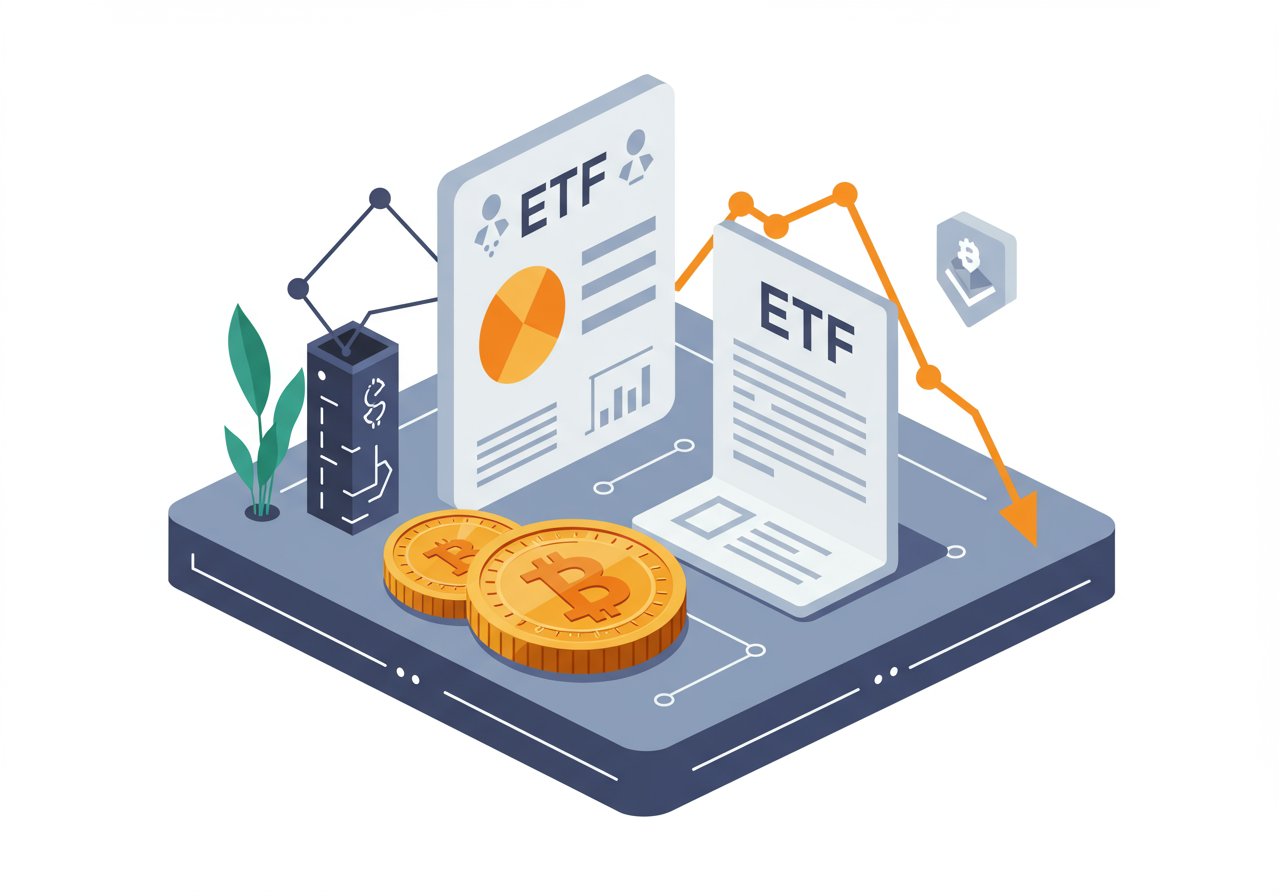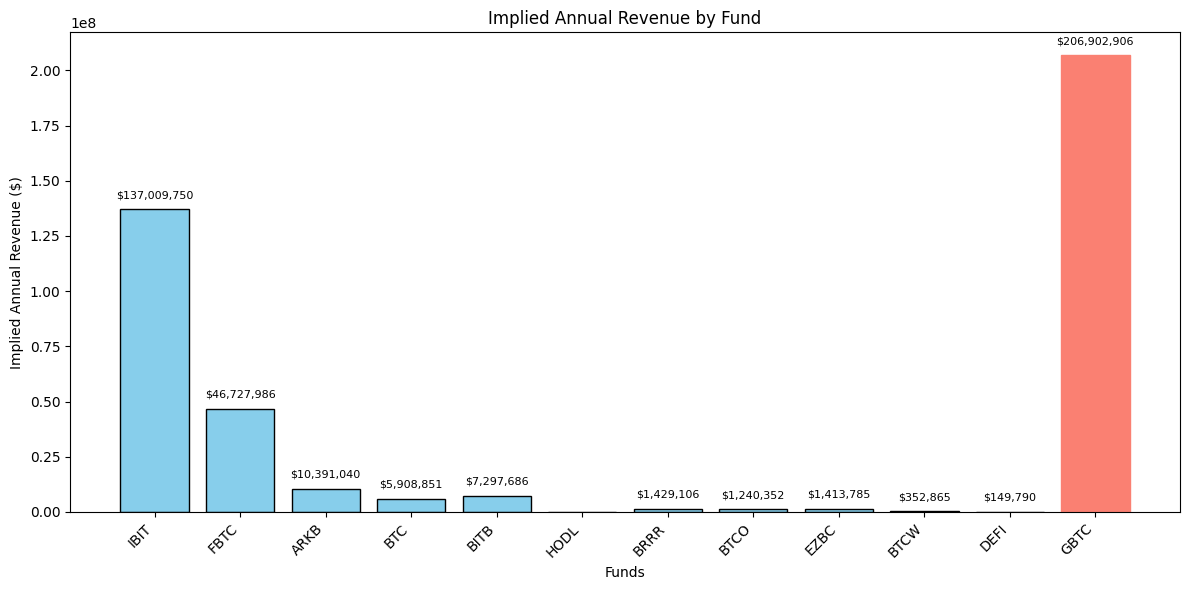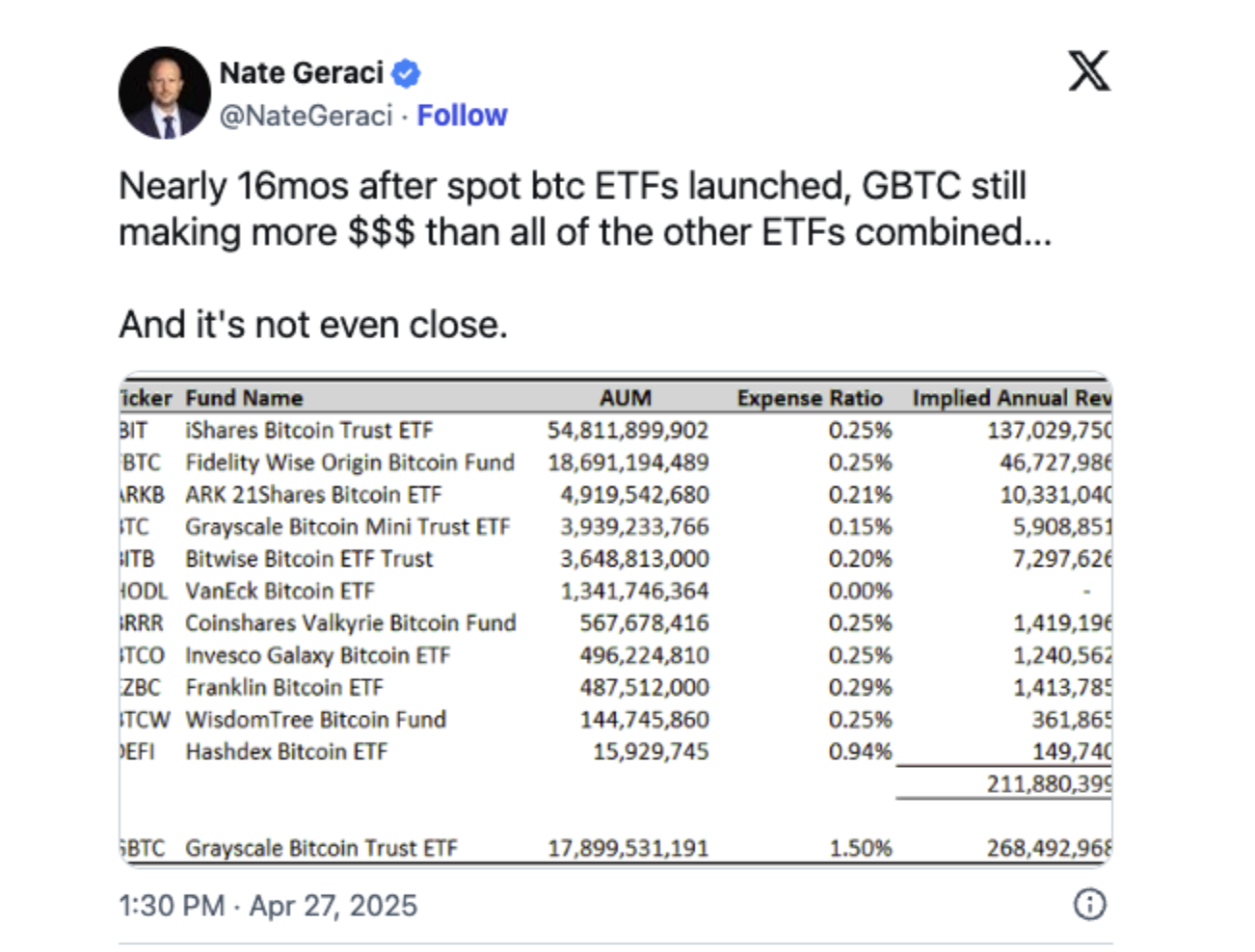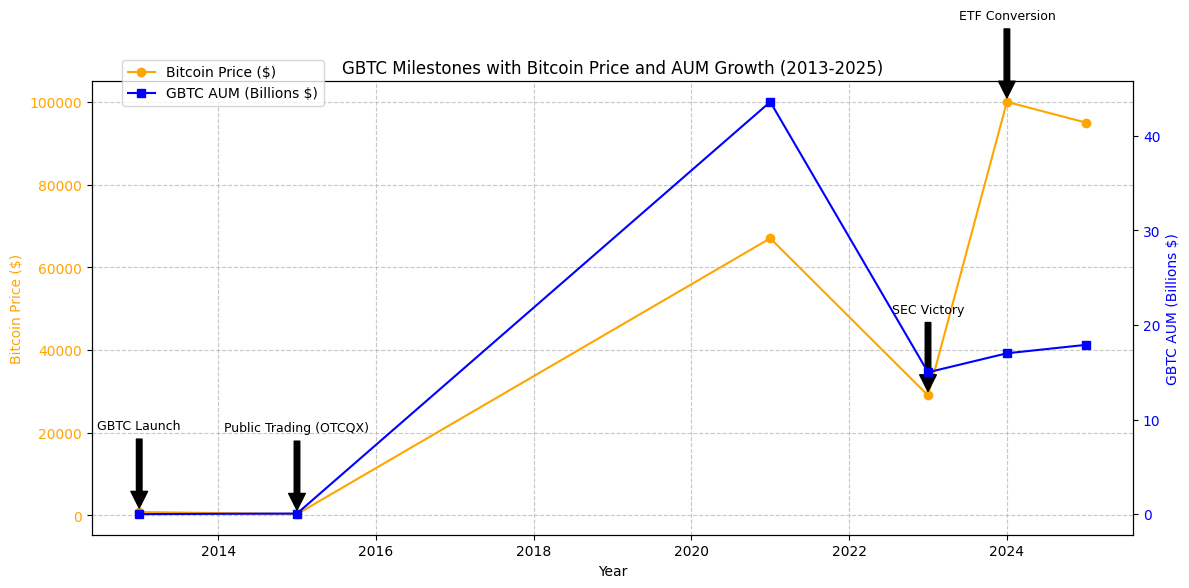
The Unstoppable Revenue Engine of Grayscale’s Bitcoin Trust
In the ever-evolving landscape of cryptocurrency investment, few entities have weathered the storms of competition like Grayscale Bitcoin Trust (GBTC). Launched in 2013 as a private placement, GBTC pioneered regulated Bitcoin investment, granting investors access to the cryptocurrency’s meteoric rise without the complexities of digital wallets or unregulated exchanges.
While the launch of numerous spot Bitcoin ETFs in 2024 brought fierce competition, GBTC’s revenue dominance remains a compelling paradox. Despite facing $18 billion in outflows since early 2024, GBTC still generated $268.5 million in annual revenue, exceeding the combined $211.8 million revenue of all other US spot Bitcoin ETFs.

This remarkable resilience stems from a potent blend of historical legacy, strategic maneuvering, and the unseen weight of tax frictions binding investors to their positions. The question arises: what fuels GBTC‘s continued revenue supremacy?
High Fees: A Bastion and a Achilles’ Heel
At the core of GBTC’s revenue dominance lies its 1.5% expense ratio, a towering figure compared to competitors like IBIT and FBTC (both 0.25%), Bitwise (0.24%), and Franklin Templeton (0.19%). This high fee, applied to $17.9 billion in assets under management (AUM), yields a substantial $268.5 million annually, eclipsing the combined revenue of all other US spot Bitcoin ETFs.
While this arithmetic advantage provides a solid revenue stream, it also serves as GBTC’s Achilles’ heel. The 1.5% fee attracts criticism, with experts predicting continued outflows as investors gravitate towards cheaper alternatives. Recognizing this challenge, Grayscale launched the Grayscale Bitcoin Mini Trust (BTC) in March 2025, boasting a 0.15% fee, the lowest among US spot Bitcoin ETPs. This strategic maneuver targets cost-conscious investors, offering a lower-fee option while retaining the GBTC brand’s credibility.
Legacy, Loyalty, and Tax Frictions
Beyond the mechanics of fees, GBTC’s enduring revenue crown is underpinned by its storied legacy, the loyalty it inspires among its investors, and the powerful influence of tax considerations. Grayscale has consistently been at the forefront of regulated Bitcoin investment, securing a pivotal legal victory against the US SEC in 2023 that compelled the approval of spot Bitcoin ETFs.
This pioneering spirit has resonated with institutional and accredited investors, many of whom entered GBTC during its private placement phase or at steep NAV discounts, forging a deep-rooted bond. Additionally, tax implications play a significant role in deterring investors from switching. Many early GBTC investors purchased shares at much lower prices, generating substantial unrealized capital gains that would trigger substantial tax liabilities upon sale.

Loss aversion, combined with loyalty to Grayscale‘s brand, further strengthens GBTC‘s hold on its investors. While the closure of the NAV discount (from 50% to near zero in July 2024) spurred some outflows, core holders remain, confident in Grayscale‘s custodial services through Coinbase Custody. GBTC’s simple, regulatory-compliant structure continues to attract investors, particularly institutions seeking to avoid the complexities of direct Bitcoin ownership.
Navigating the Future
While newer ETFs like IBIT and FBTC attract fresh capital with lower fees and enhanced liquidity, GBTC retains a unique niche within the market. Its revenue dominance, while facing challenges, remains a testament to its resilience, reflecting the interplay of market dynamics, investor psychology, and strategic maneuvers. As the cryptocurrency landscape evolves, the future of GBTC‘s revenue supremacy will depend on its ability to adapt to changing investor needs and navigate the complexities of market dynamics.



